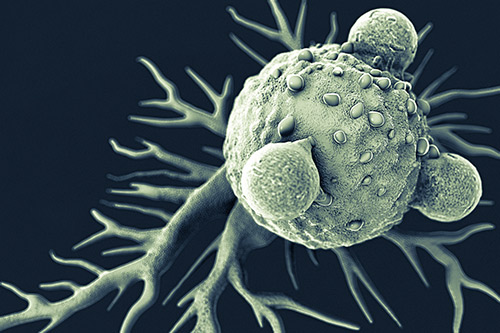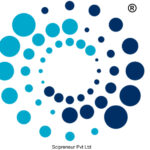
Novartis CAR-T Cell Therapy (CTL019) Receives FDA Breakthrough Therapy Designation
Designation prioritizes investigational CTL019 (tisagenlecleucel) as a potential treatment for adult patients with relapsed/refractory (r/r) diffuse large B-cell lymphoma (DLBCL)
Designation prioritizes investigational CTL019 (tisagenlecleucel) as a potential treatment for adult patients with relapsed/refractory (r/r) diffuse large B-cell lymphoma (DLBCL)
Source: Novartis NEWS
April 22, 2017
- R/r DLBCL, an aggressive cancer with limited options, is the second indication for CTL019 to receive Breakthrough Therapy designation
- Advances in CTL019 result from collaboration with the University of Pennsylvania; regulatory submissions for r/r DLBCL are expected to be filed by the end of the year
Novartis announced that the US Food and Drug Administration (FDA) has granted Breakthrough Therapy designation to CTL019, an investigational chimeric antigen receptor T cell (CAR-T) therapy, for the treatment of adult patients with relapsed and refractory (r/r) diffuse large B-cell lymphoma (DLBCL), who have failed two or more prior therapies. This is the second indication for which CTL019 has received this designation; the first being for the treatment of r/r B-cell acute lymphoblastic leukemia (ALL) in pediatric and young adult patients.
“At Novartis, we are eager to unlock the full potential of CTL019, including the potential to help patients with r/r DLBCL,” said Vas Narasimhan, Global Head of Drug Development and Chief Medical Officer, Novartis. “We look forward to working closely with the FDA to help bring this potential new treatment option to patients as soon as possible.”
CAR-T cell therapy is different from typical small molecule or biologic therapies currently on the market because it is manufactured for each individual patient. During the treatment process, T cells are drawn from a patient’s blood and reprogrammed in the laboratory to create T cells that are genetically coded to hunt the patient’s cancer cells and other B-cells expressing a particular antigen.

CTL019 was first developed by the University of Pennsylvania (Penn). In 2012, Novartis and Penn entered into a global collaboration to further research, develop and then commercialize CAR-T cell therapies, including CTL019, for the investigational treatment of cancers. Through the collaboration, Novartis holds the worldwide rights to CARs developed with Penn for all cancer indications. In March 2017, Novartis announced that the FDA accepted the company’s Biologics License Application filing and granted priority review for CTL019 in the treatment of r/r pediatric and young adult patients with B-cell ALL.
The Breakthrough Therapy designation is based on data from the multi-center Phase II JULIET study (NCT02445248), which is evaluating the efficacy and safety of CTL019 in adult patients with r/r DLBCL. JULIET is the second global CAR-T trial, following the Novartis ELIANA study (NCT02435849) investigating CTL019 in r/r B-cell ALL. Findings from JULIET are expected to be presented at an upcoming medical congress.
“We are encouraged by the FDA’s recognition in the potential of CTL019 for this indication, which follows our promising studies of this therapy for ALL and the FDA filing by Novartis in pediatric and young adult ALL that received priority review,” said the Penn team’s leader, Carl June, MD, director of the Center for Cellular Immunotherapies in the Perelman School of Medicine at the University of Pennsylvania. “Work with our collaborators at trial sites across the world is paving a path to bring personalized cell therapies to more patients with these devastating blood cancers.”
According to FDA guidelines, treatments that receive Breakthrough Therapy designation are those that treat a serious or life threatening disease or condition and demonstrate a substantial improvement over existing therapies on one or more clinically significant endpoints based on preliminary clinical evidence. The designation also indicates that the agency will expedite the development and review of CTL019 in adults with r/r DLBCL. This marks the 14th Breakthrough Therapy designation for Novartis since the FDA initiated the program in 2013, underscoring an emphasis to develop innovative treatments in disease areas with significant unmet need.
DLBCL is the most common form of lymphoma and accounts for approximately 30 percent of all non-Hodgkin lymphoma cases[1]. Ten to 15 percent of DLBCL patients fail to respond to initial therapy or relapse within three months of treatment, and an additional 20 to 25 percent relapse after initial response to therapy[2].
Because CTL019 is an investigational therapy, the safety and efficacy profile has not yet been established. Access to investigational therapies is available only through carefully controlled and monitored clinical trials. These trials are designed to better understand the potential benefits and risks of the therapy. Because of the uncertainty of clinical trials, there is no guarantee that CTL019 will ever be commercially available anywhere in the world.
Disclaimer
The foregoing release contains forward-looking statements that can be identified by words such as “Breakthrough Therapy designation,” “investigational,” “potential,” “expected,” “eager,” “look forward,” “priority review,” “upcoming,” “encouraged,” “promising,” “yet,” “will,” or similar terms, or by express or implied discussions regarding potential marketing approvals for CTL019, or regarding potential future revenues from CTL019. You should not place undue reliance on these statements. Such forward-looking statements are based on the current beliefs and expectations of management regarding future events, and are subject to significant known and unknown risks and uncertainties. Should one or more of these risks or uncertainties materialize, or should underlying assumptions prove incorrect, actual results may vary materially from those set forth in the forward-looking statements. There can be no guarantee that CTL019 will be submitted or approved for sale in any market, or at any particular time. Nor can there be any guarantee that CTL019 will receive regulatory approval or be commercially successful in the future. In particular, management’s expectations regarding CTL019 could be affected by, among other things, the uncertainties inherent in research and development, including clinical trial results and additional analysis of existing clinical data; regulatory actions or delays or government regulation generally; the company’s ability to obtain or maintain proprietary intellectual property protection; general economic and industry conditions; global trends toward health care cost containment, including ongoing pricing and reimbursement pressures; safety, quality or manufacturing issues, and other risks and factors referred to in Novartis AG’s current Form 20-F on file with the US Securities and Exchange Commission. Novartis is providing the information in this press release as of this date and does not undertake any obligation to update any forward-looking statements contained in this press release as a result of new information, future events or otherwise.
About Novartis
Novartis provides innovative healthcare solutions that address the evolving needs of patients and societies. Headquartered in Basel, Switzerland, Novartis offers a diversified portfolio to best meet these needs: innovative medicines, cost-saving generic and biosimilar pharmaceuticals and eye care. Novartis has leading positions globally in each of these areas. In 2016, the Group achieved net sales of USD 48.5 billion, while R&D throughout the Group amounted to approximately USD 9.0 billion. Novartis Group companies employ approximately 118,000 full-time-equivalent associates. Novartis products are sold in approximately 155 countries around the world. For more information, please visit http://www.novartis.com.
Novartis is on Twitter. Sign up to follow @Novartis at http://twitter.com/novartis(link is external) and @Novartis Cancer at http://twitter.com/novartiscancer (link is external)
For Novartis multimedia content, please visit www.novartis.com/news/media-library
For questions about the site or required registration, please contact media.relations@novartis.com
References
[1] American Society of Clinical Oncology. Lymphoma – Non-Hodgkin: Subtypes (Dec. 2016 revision). http://www.cancer.net/cancer-types/lymphoma-non-hodgkin/subtypes(link is external). Accessed March 2017.
[2] Sehn, L. Paramount prognostic factors that guide therapeutic strategies in diffuse large B-cell lymphoma. Hematology, December 2012; 1; 402-409.
# # #
Novartis Media Relations
Central media line: +41 61 324 2200
E-mail: media.relations@novartis.com
| Eric Althoff Novartis Global Media Relations +41 61 324 7999 (direct) +41 79 593 4202 (mobile) eric.althoff@novartis.com |
Rosemarie Yancosek Novartis Oncology Communications +1 862-778-9043 (direct) +1 862-505-9021 (mobile) rosemarie.yancosek@novartis.com |
Novartis Investor Relations
Central investor relations line: +41 61 324 7944
E-mail: investor.relations@novartis.com







Leave a Reply